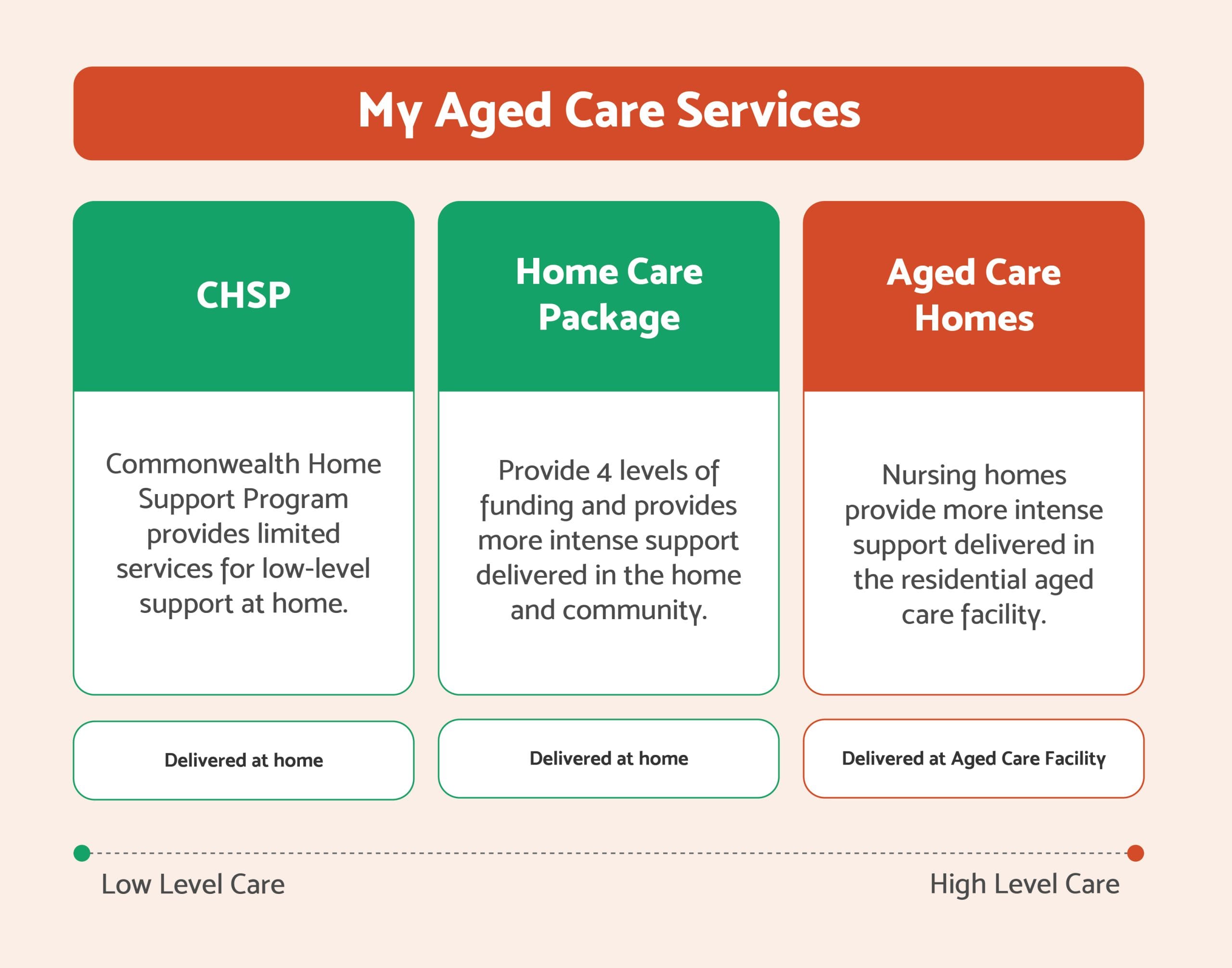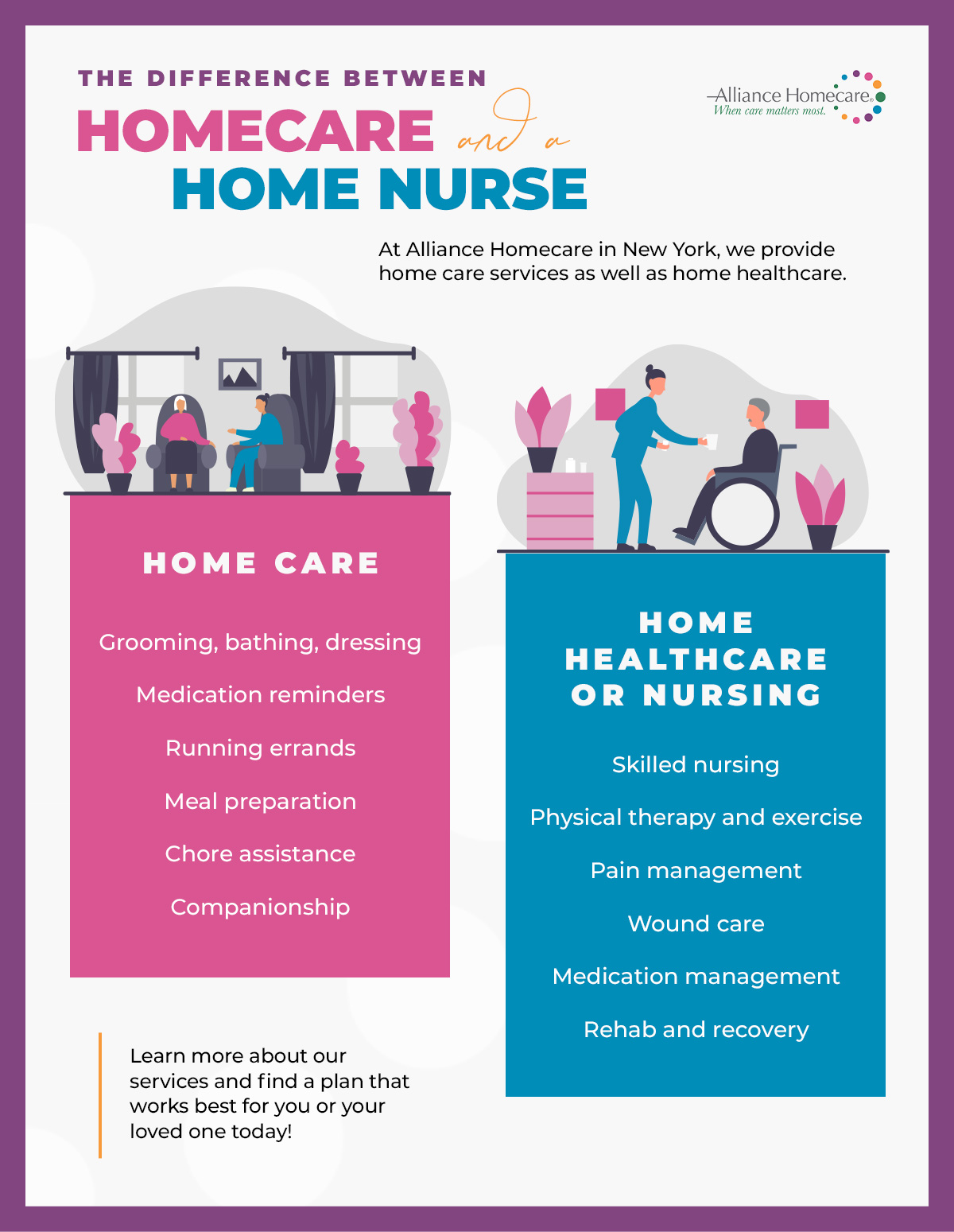Creating a smart care plan with home care package providers
Creating a smart care plan with home care package providers
Blog Article
The Significance of Home Treatment in Handicap Assistance: Exploring NDIS Registered Solutions
Home care is a basic facet of handicap assistance, particularly within the framework of NDIS signed up options. It provides crucial services that promote freedom and improve general quality of life for people with disabilities. By supplying individualized support, these services deal with unique requirements and choices. Nevertheless, the efficiency of home care depends on ongoing communication with NDIS organizers. This dynamic connection exposes deeper insights into the transformative capacity of customized support. What successes and challenges arise in this developing landscape?
Understanding the Role of Home Treatment in Special Needs Support
Home care plays a crucial function in the assistance of individuals with handicaps, providing substantial services that promote independence and improve lifestyle. It includes a series of help tailored to satisfy the distinct needs of each person, consisting of individual treatment, household jobs, and movement assistance. Educated caregivers provide friendship and emotional support, promoting meaningful connections that combat social isolation.Furthermore, home care solutions are designed to adjust as conditions alter, making certain that individuals receive the appropriate level of treatment throughout their lives. This flexibility allows for the assimilation of new therapies or modern technologies that might arise. By prioritizing the individual's choices and routines, home care encourages them to keep control over their day-to-day tasks. Ultimately, the duty of home care in handicap support is crucial, as it not just gives functional aid but also affirms the dignity and autonomy of those it offers.

Benefits of Personalized Support at Home
Personalized aid at home offers numerous benefits tailored to private needs - home care providers melbourne. By developing customized support strategies, caregivers can greatly boost the self-reliance of individuals with disabilities. This approach not just advertises autonomy but also fosters a feeling of dignity and self-respect
Tailored Assistance Strategies
Tailored support strategies play a vital function in improving the lifestyle for people with specials needs. These individualized strategies are created to deal with the distinct requirements and preferences of each person, making sure that support services line up with their particular goals and lifestyle. By involving customers in the preparation process, tailored assistance strategies foster a feeling of ownership and empowerment. This individualized strategy allows caretakers to offer pertinent help, whether it involves daily living tasks, social involvement, or skill growth. Additionally, customized plans can adapt to transforming conditions, mirroring the advancing needs of the person. Ultimately, this individualized assistance enhances not only daily operating but likewise psychological health, strengthening the relevance of a customized technique in disability support solutions.
Enhanced Self-reliance Opportunities
People with specials needs profit significantly from customized aid at home, as it advertises boosted self-reliance opportunities. Customized support enables people to take part in day-to-day activities with greater self-confidence and autonomy. Home treatment services can include help with individual treatment, meal preparation, and home administration, making it possible for customers to keep their choices and regimens. This individualized strategy fosters a sense of control, encouraging people to make choices that mirror their one-of-a-kind demands and goals. Furthermore, the comfort of home produces a familiar atmosphere, decreasing stress and anxiety and enhancing emotional wellness. Overall, personalized aid not only sustains essential everyday tasks however additionally cultivates a more independent way of life, allowing individuals with disabilities to thrive within their communities and attain better individual satisfaction.
Summary of NDIS Registered Home Care Services
NDIS registered home treatment solutions include various kinds of support customized to individuals with impairments (home care providers). Recognizing eligibility and accessibility to these services is essential for making the most of the advantages of NDIS support. This introduction will highlight the crucial aspects of home care under the NDIS structure
Types of Home Treatment
Home care services play an important role in sustaining individuals with impairments, supplying a series of alternatives to meet varied needs. NDIS registered home treatment solutions include personal treatment, which aids individuals with everyday tasks like showering and clothing. Domestic support assists keep a safe and clean living environment, while break treatment gives momentary alleviation for primary caregivers. Neighborhood access services make it possible for engagement in social and recreational tasks, fostering self-reliance and link. Additionally, nursing care delivers medical support in the house, guaranteeing wellness demands are met. Therapy services, including job-related and physiotherapy, help in rehabilitation and skill growth. Together, these various sorts of home treatment add significantly to enhancing the high quality of life for people with handicaps.
Qualification and Accessibility
Just how can one access the essential home care services provided under the NDIS? To certify for these services, individuals must fulfill details qualification requirements described by the National Disability Insurance System. Applicants must show a significant and long-term handicap that affects their everyday functioning. The process begins with sending a Gain access to Request Kind, which consists of documentation of the handicap and its effect on every day life. As soon as authorized, individuals obtain a tailored strategy outlining their needed assistances, including home treatment solutions. These services can be accessed through NDIS-registered carriers, that should abide by rigorous high quality and safety requirements. Understanding these steps guarantees individuals can effectively browse the NDIS system to get the required assistance for their home care requirements.
Advantages of NDIS Assistance
Accessing vital assistance through signed up solutions offers individuals with disabilities a transformative chance to boost their high quality of life. NDIS signed up home treatment solutions give tailored support, making certain that each participant's distinct requirements are fulfilled. These solutions encompass a variety of assistances, consisting of individual treatment, wheelchair aid, and therapeutic services, all created to advertise freedom and wellness. In addition, signed up service providers abide by rigorous top quality criteria, ensuring a high level of care and safety and security. Individuals also benefit from boosted versatility, permitting them to choose service delivery methods that ideal match their way of livings. Ultimately, NDIS assistance cultivates a feeling of area and empowerment, making it possible for people with specials needs to involve more fully in their day-to-days live and attain individual objectives.
Tailoring support to individual needs is necessary in special needs care, as each person's circumstances and choices vary considerably. The National Special Needs Insurance Coverage Scheme (NDIS) emphasizes the importance of individualized treatment plans that show the distinct goals and requirements of each individual. This approach permits caregivers to focus on specific areas such as wheelchair aid, daily living skills, and emotional support, ensuring that solutions are efficient and pertinent.
Enhancing Lifestyle Through Home Care
While several people with handicaps deal with distinct difficulties, home care services can substantially improve their high quality of life by providing tailored assistance in familiar surroundings. These solutions cultivate self-reliance, allowing individuals to participate in everyday activities that promote self-confidence and personal gratification. Through customized treatment plans, home care suppliers can attend to details demands, whether it entails assistance with individual health, dish preparation, or medicine management.Moreover, home care see assists in social communications, motivating links with friends and family, which are essential for emotional health. By remaining in their very own homes, individuals experience a feeling of security and connection, reducing stress and anxiety associated with unfamiliar atmospheres. Furthermore, caretakers can provide companionship, aiding to reduce sensations of seclusion. On the whole, home treatment not just addresses physical demands but also improves the social and emotional dimensions of life for people with handicaps, eventually causing an extra satisfying and satisfying existence.
Navigating the NDIS for Home Treatment Solutions
Assisting through the National Handicap Insurance Policy Plan (NDIS) can considerably impact the performance of home care solutions for people with impairments. Recognizing the NDIS structure is crucial for individuals looking for ideal funding for home care solutions. This process starts with identifying specific needs and objectives, which helps in customizing support strategies that straighten with the individual's requirements.Navigating the NDIS includes familiarizing oneself with the eligibility criteria, application treatments, and the preparation process. Individuals must involve with NDIS organizers to discuss their certain situations and desired end results. This dialogue assures that the needed home treatment services, such as personal treatment, aid with daily living, and healing support, are included in their plans.Furthermore, remaining upgraded on NDIS policies and any kind of modifications in funding can equip individuals to make enlightened selections regarding their home care choices, eventually enhancing their freedom and high quality about his of life.
Success Stories: Encouraging Lives With Home Care
Home care solutions have transformed the lives of several individuals with handicaps, demonstrating the profound impact of individualized assistance. Sarah, a young woman with cerebral palsy, got self-reliance via tailored home care assistance that enabled her to take part and handle daily tasks in community tasks. In a similar way, John, that has autism, benefited from a committed caretaker who helped him create social abilities and foster significant partnerships, boosting his quality of life. These success tales highlight how home care not just meets physical demands however also advertises emotional wellness. Households report increased comfort, recognizing their liked ones obtain specialist and caring support in an acquainted atmosphere. As these instances highlight, home care encourages individuals with impairments to flourish, urging self-sufficiency and boosting total life fulfillment. The transformative impacts of such services underscore the relevance of home care in the more comprehensive context of impairment assistance.

Often Asked Concerns
Just How Can I Locate NDIS Registered Home Treatment Providers in My Location?
To discover NDIS signed up home care companies in a specific area, individuals can check out the NDIS site, make use of the service provider finder tool, or get in touch with local disability assistance organizations for recommendations and advice.
What Credentials Should Home Treatment Workers Possess for Handicap Assistance?
Home care employees for special needs support must ideally possess certifications such as a Certification III in Individual Support, relevant experience, strong communication abilities, compassion, and understanding of special needs rights and person-centered treatment methods.
Are There Any Kind Of Costs Connected With NDIS Registered Home Care Services?
Expenses connected with NDIS signed up home care solutions can vary based on individual needs, provider, and the level of care required. Participants need to review their plans to comprehend certain funding and prospective out-of-pocket expenditures.
Can Home Treatment Solutions Accommodate Certain Social or Language Needs?

How Often Can I Change My Home Care Assistance Plan?
Individuals can generally alter their home treatment support strategy as required, frequently at least each year or upon substantial life adjustments. Routine reviews ensure that the strategy continues to be pertinent and effectively addresses advancing personal circumstances and needs. Trained caregivers provide companionship and emotional support, fostering meaningful connections that battle social isolation.Furthermore, home care solutions are made to adjust as conditions transform, ensuring that individuals get the ideal level of care throughout their lives. Home care solutions can consist of help with personal care, dish preparation, and home management, enabling clients to keep their regimens and preferences. NDIS signed up home care services consist of individual care, which assists individuals with day-to-day tasks like showering and clothing. With personalized care plans, home care suppliers can attend to certain demands, whether it entails help with individual health, dish prep work, or drug management.Moreover, home care helps with social interactions, encouraging connections with household and buddies, which are vital for psychological health. Prices associated with NDIS registered home treatment solutions can vary based on specific needs, solution companies, and the degree of care needed.
Report this page